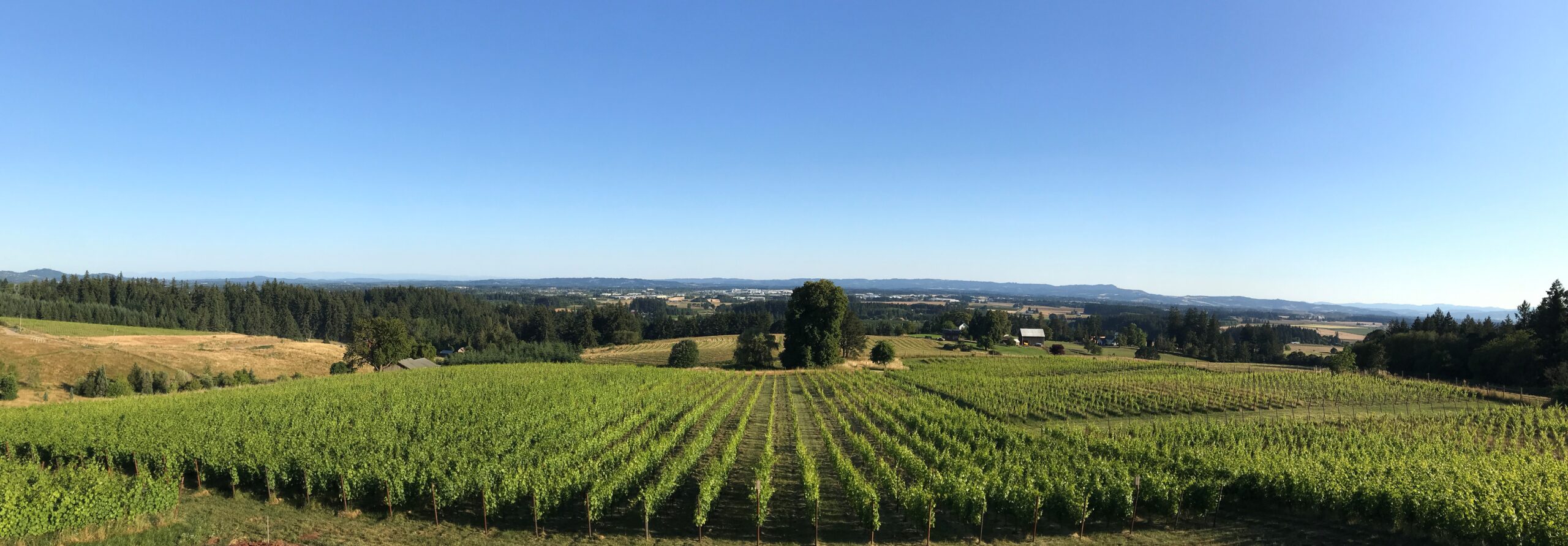
the Vineyard
Our viticultural decisions are guided by our ethical responsibility to proper stewardship. We take great pride in maintaining a no-till, dry farmed, herbicide free vineyard. Our approach to growing winegrapes revolves around the belief that the vine acts as a conduit that exposes overall soil health. Instead of eliminating competition from native species, cover crops, and weeds we strive to create an equilibrium between the vine and its surrounding ecosystem. Our perennial cover crops provide long term nutrient rich mulching material, soil stability, proper water infiltration, and minimal disruption to promote the presence of mycorrhiza.
Approaching equilibrium from a plant-by-plant basis allows us to understand transitions of soil types, nutrient levels, moisture content, and other vital information necessary to maintaining a productive vineyard. To further our commitment to minimizing our ecological footprint, only OMRI certified fungicides and foliar fertilizers are used. We believe timing is everything and paramount to our management approach.
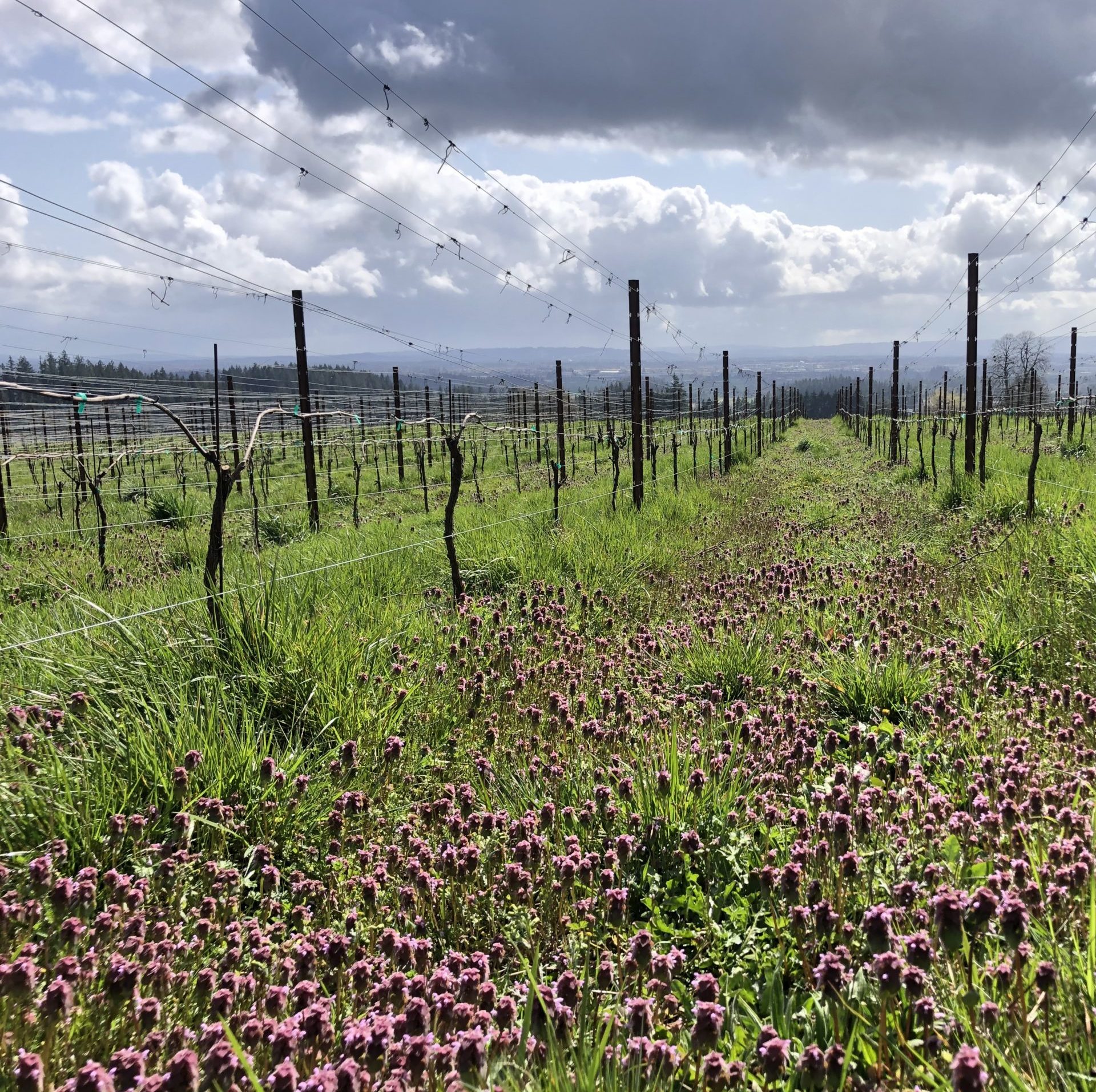
Vineyard Practices
Vineyard management is key to our winemaking program. We do not use any soil disrupting techniques, irrigation, synthetic fertilizers or pesticides, or herbicides. Rather, we employ the following practices; building soil fertility through cover crops and mulching, dry-farming, OMRI certified fertilizer and pesticides, and timing to control invasive species via mechanical means. We view the vineyard as a diverse ecosystem rather than a monocultural crop.
Thus, these practices are intended to preserve the ecology of the vineyard. Symbiotic interactions with biota above and below ground is critical to a changing environment with more extreme shifts in temperature, precipitation rates, and timing of seasonal events. A strong ecosystem is our best tool to increase resiliency in the face of a changing climate.
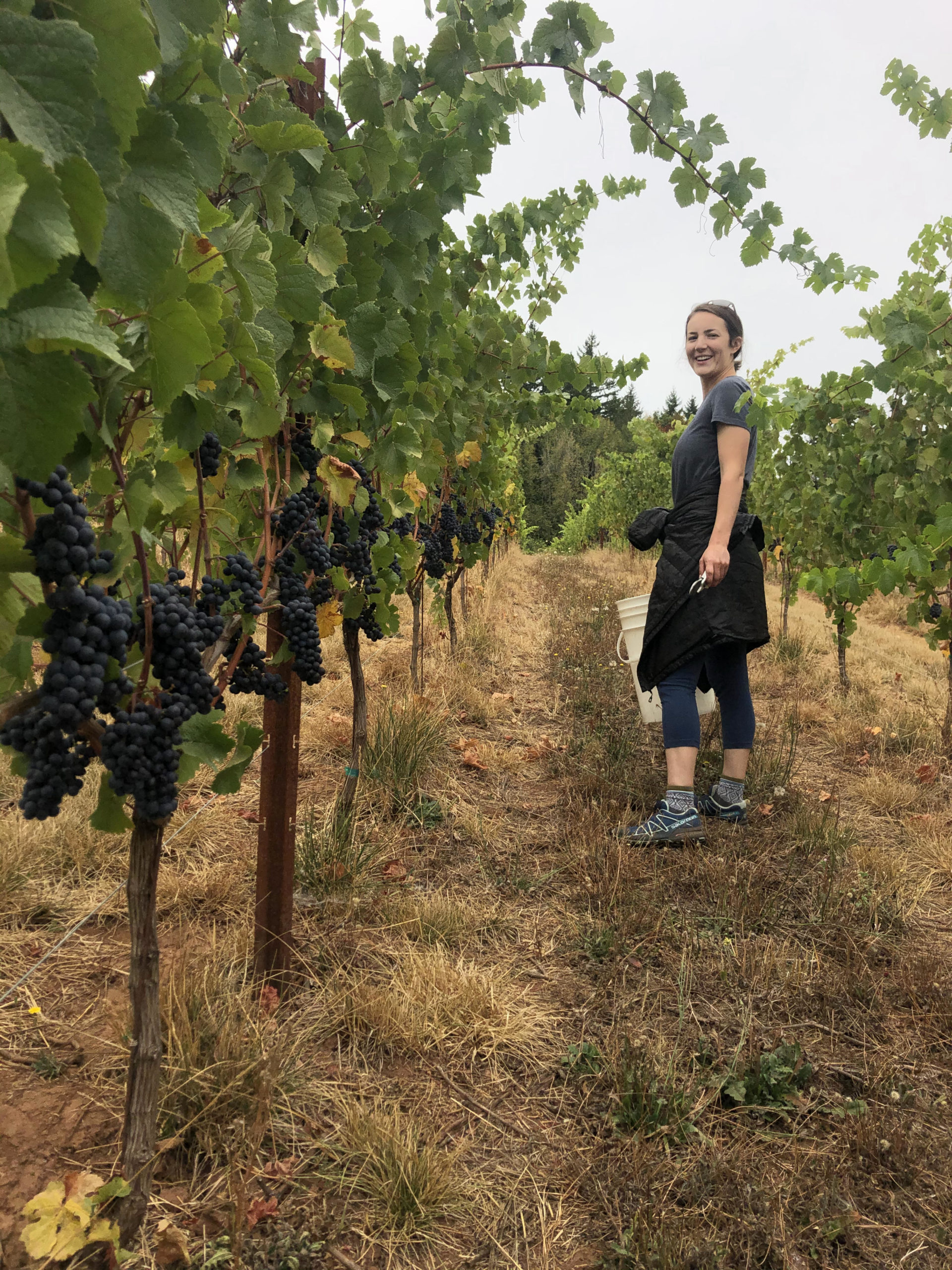
Ethical Viticulture
Ethical Viticulture is a farming technique that aims to minimize inputs into the vineyard through thoughtful and intentional management practices, conserve natural resources, and produce high quality fruit. Ethical viticulture is our greatest tool to create resiliency against a changing climate and is a critical part of our vineyard philosophy.
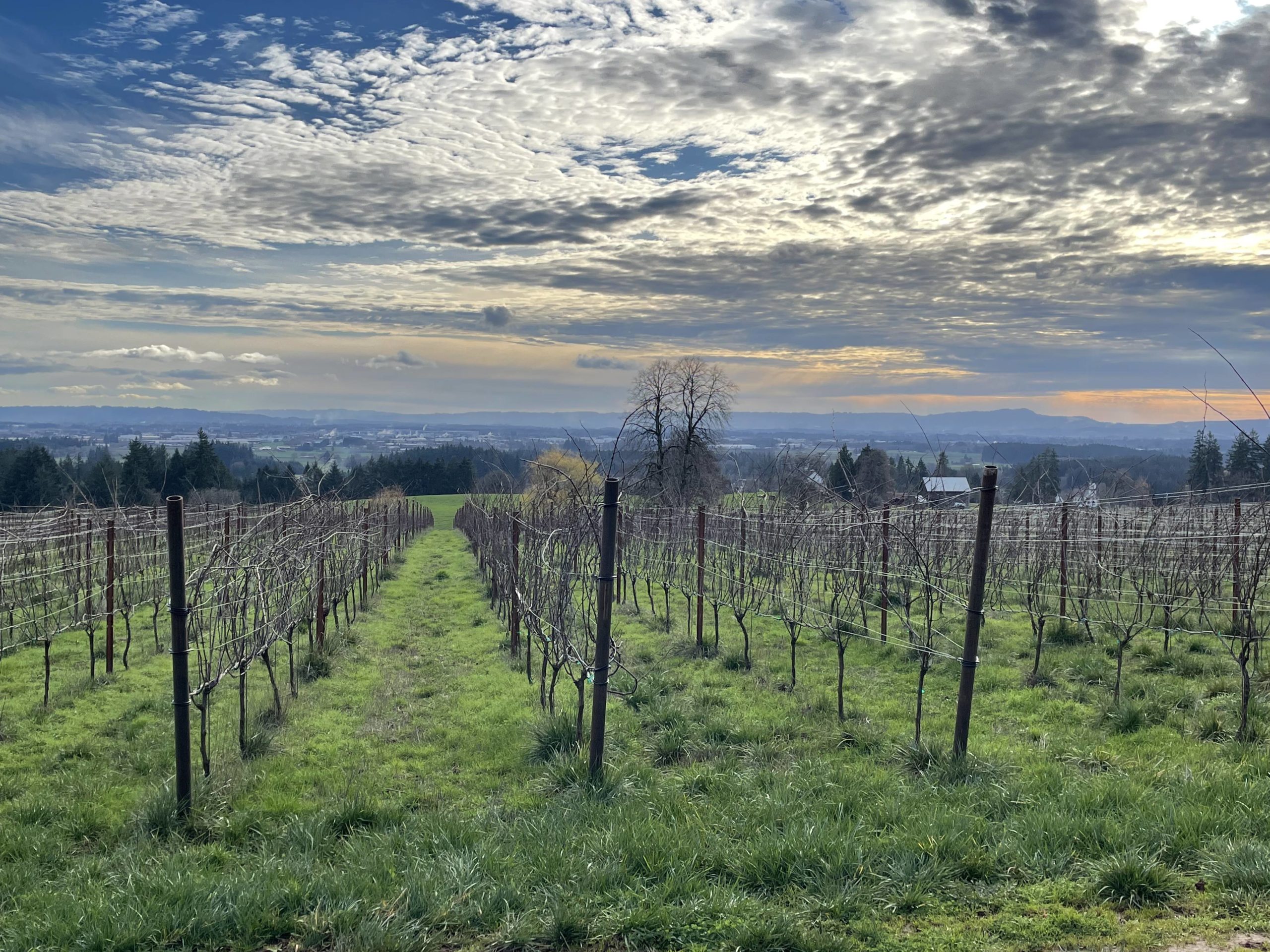
No-till – Maintain the integrity of our uppermost layer of soil and the delicate ecosystem that requires decaying organic material.
Minimal Spraying – Scouting for disease pressure and spraying on differing intervals instead of a routine schedule.
Non-Irrigated – Forcing plants to find equilibrium with their surroundings and develop deep roots.
OMRI certified pesticides and fertilizers – Inputs into the vineyard are minimal and scrutinized for their own manufacturing inputs.
Cover Crops – The best tool to adjust soil fertility and provide mulching material undervine.
Timing – Implementation of mowing or other mechanical means to control invasive plant species or highly competitive native plant species.
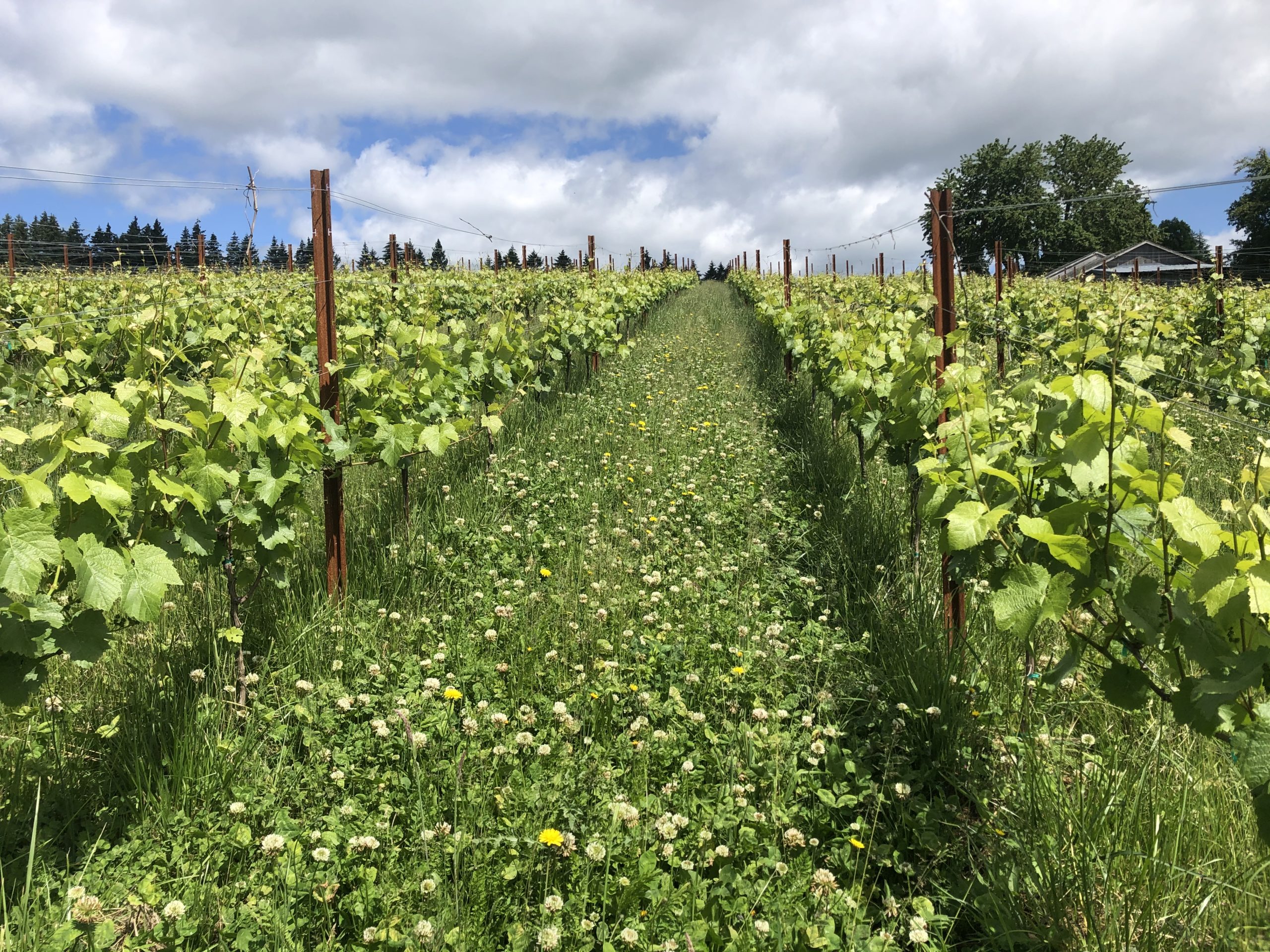
The Tualatin Hills AVA
Eagles Nest Reserve Vineyard and Winery is located in the Tualatin Hills AVA, the most northerly winegrape region in Oregon’s Willamette Valley. This AVA occupies a rain shadow north of Chehalem Mountain and east of the Coast Range, giving it the advantage of a drier climate. Eagles Nest Reserve’s site in Helvetia is in the extreme eastern border of this AVA at an elevation of 400-600 feet. This location at the western end of the Columbia Gorge combines the drier rain shadow climate with the warm easterly winds of the Gorge, resulting in earlier ripening and higher sugar content. As the summer heat dome of Eastern Oregon breaks down in the Autumn, the predominant airflow shifts to a more westerly flow with warm days and long cool nights, giving plenty of hang time for bringing out more complex, fruity flavors in our Rose’ and Pinot Noir.
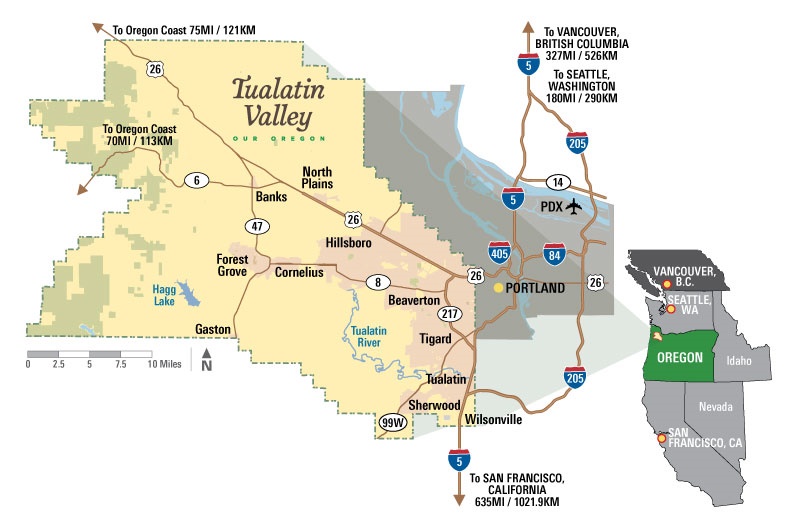
This same position near the Columbia Gorge has also contributed to a distinctive beneficial soil profile. The Tualatin Mountains and their Helvetia foothills were formed by a massive lava flow called the Columbia River Basalt Group 17 million years ago, flowing from Eastern Oregon down the Gorge. These were followed by eons of windblown “loess” from the same ancient basalt following the same route. The Missoula floods that passed through the Gorge created transitional areas in the lower elevations that include deep alluvial deposits with colluvial basalt and windblown basaltic loess. Thus, our location in the Tualatin Hills AVA, with a signature combination of Willamette Valley climate and Columbia Gorge influence on soil and wind has produced a unique beneficial terroir for producing fine Rose’ and Pinot Noir.

